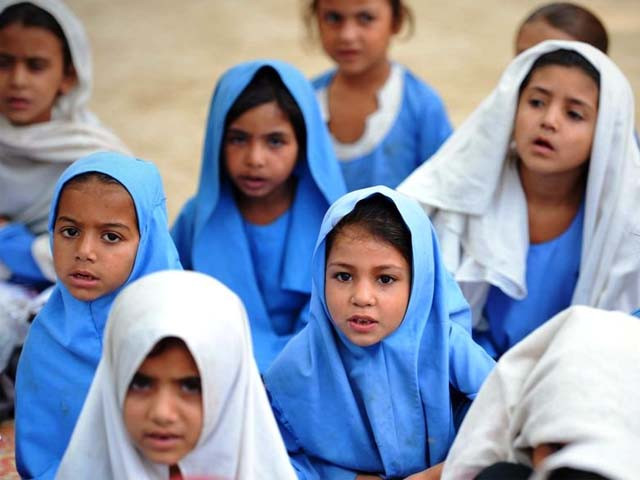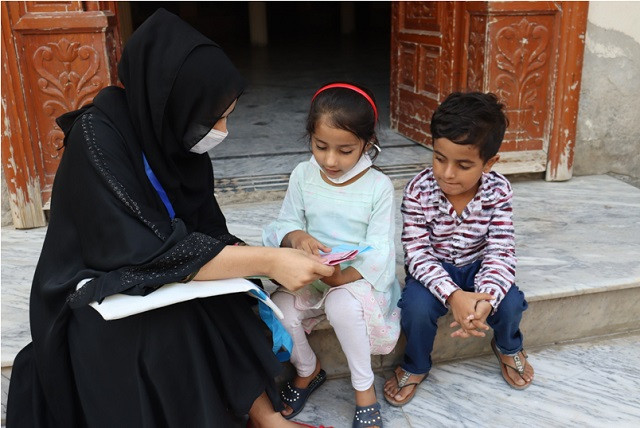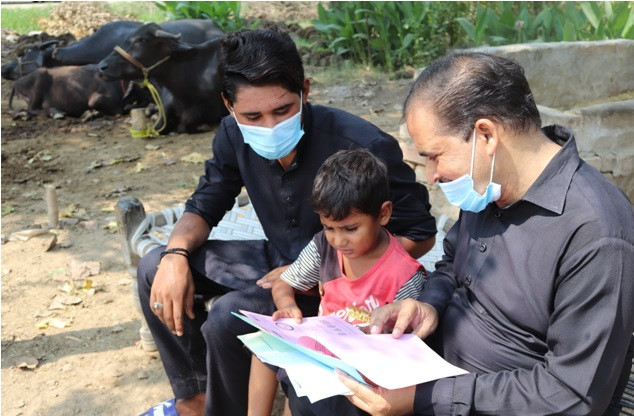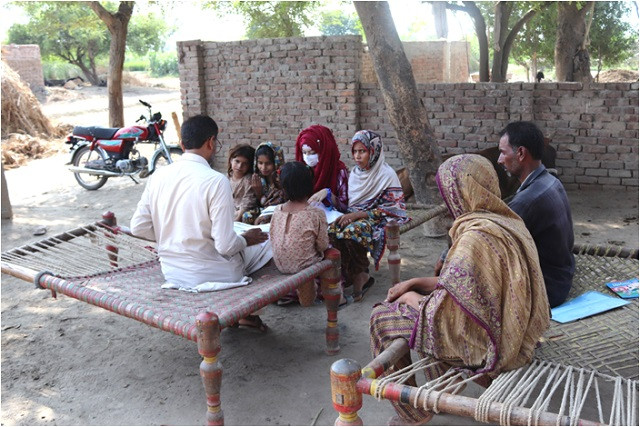19% kids remained out of school last year
Report shows share of private ones fell by 4% against year 2019

Around 19% of children in the country remained out of school last year whereas the share of private ones fell by 4% comparison with the year 2019, according to a report launched on Thursday.
The Annual Status of Education Report (ASER) 2021 further revealed that the drop-out rate in government schools had fallen because of the increase in the number of teachers and improvement in classrooms conditions.
It added that 81% of children were enrolled in government schools whereas 19% were going to private ones.
The enrolment edge in government schools poses new challenges for supply side actions in terms of facilities and more spaces and teachers for children who can be accommodated, attend and learn above all in public sector as their fundamental entitlement.

The report was based on citizen-led household survey. The Idara-e-Taleem-o-Aagahi (ITA) conducted the survey in joint collaboration with around 20 organisations. A total of 1,000 volunteers visited 152 districts in 4,420 villages to conduct the ASER survey involving 87,415 households and 247,978 children aged between 3 and 16 years.
The survey found out that in the country’s rural areas, 212,105 children, aged between 5 and 16 years, were competent in Urdu, Sindhi or Pashto according to the areas they lived in, as well as in English and arithmetic as per their curriculum and textbooks.
The report has been annually informing about the progress and challenges for Article 25 A of the Constitution extending education for all pupils aged between 5 and 16 years since 2010 and for tracking progress towards sustainable development goal number 4, measuring learning at the lower primary level.

Learning lies at the heart of the education enterprise but because of the pandemic and school closures, ASER rural results for 2021 reflect a drop in enrollment for the age group 3 to 5 and 6 to 16 years.
For the first time during Covid-19 pandemic, there are more boys in Punjab dropping out of school.
These boys are presumably going to child labour and dropping out of schools.
The Early Childhood Education (ECE) has been historically tracked by ASER Pakistan.
From 2014 when the ECE enrolment stood at 39%, it has registered a marginal decline to 38% in 2021. The report stated that although ECE was critical for foundational learning readiness in literacy and numeracy, but remains largely ignored as a holistic sub-sector addressing the physical, socio-emotional and cognitive domains.
According to the rural portion of the report, the student competencies in learning language and arithmetic have declined to 55% of class 5 children, who could read a class 2-level story in Urdu, Sindhi or Pashto against 59% in 2019.

A total of 51% class 5 children could solve two-digit division against 57% in 2019.
Only for English, the learning levels have improved marginally. A total of 56% class 5 children could read sentences (class 2-level) against 55% in 2019.
Children enrolled in private schools are performing better in literacy in comparison with their government counterparts. Boys are outperforming girls; however, in numeracy, both sectors are at par. Foundational learning trailing from grade 3 remains compromised in grade 5 and even in grade 8 as learning poverty is on the rise.
The report highlights that while children in private schools taking tuition has remained at the same level 22% as in 2019, paid coaching has recorded a massive jump for children in government schools from 6% in 2019 to 20% in 2021. The increase in tuition in government schools by 14% during Covid-19 is a burden on poor households.
Children’s learning support from family members stood at 68%, 57% of them availed PTV teleschool sessions, 37% had access to smartphones followed by 29% with access to a computer. A total of 27% paid tuition, 14% used digital learning resources and 6% accessed radio programmes.



















COMMENTS
Comments are moderated and generally will be posted if they are on-topic and not abusive.
For more information, please see our Comments FAQ